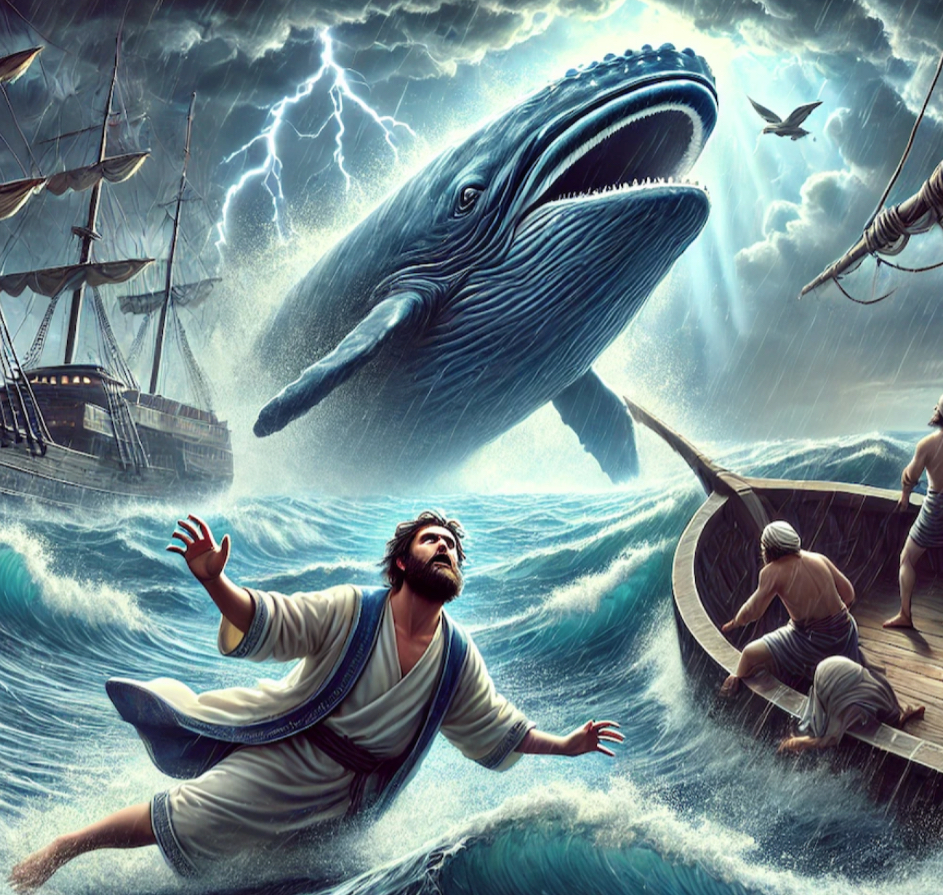Exodus 22:1
“If a man shall steal an ox, or a sheep, and kill it, or sell it; he shall restore five oxen for an ox, and four sheep for a sheep.”
God gave Israel clear laws about stealing. If someone stole an ox, they had to pay back fivefold. If they stole a sheep, they had to pay fourfold. It wasn’t the same penalty for both. That’s interesting. Why did an ox cost five times and a sheep four?
The difference came down to value and impact. An ox was a worker. It plowed fields, carried loads, and helped a family survive. Losing an ox meant more than just losing an animal—it took away a man’s ability to provide.
A sheep, on the other hand, was still valuable, but its loss wasn’t as crippling. You could replace a sheep, but losing an ox had long-term effects.
This law wasn’t just about punishing a thief. It was about justice—making sure the penalty fit the crime. And that same principle still applies today.
1. Not All Sin is the Same
A lot of people say, “All sin is the same in God’s eyes.” But that’s only partially true.
Yes, any sin is enough to send a person to hell without Christ (Romans 6:23), and yes, Christ’s blood can cleanse all sin (1 John 1:7). But in this world, some sins cause more damage than others.
Think about it: stealing a dollar from your brother isn’t the same as robbing a widow of her life savings. Telling a lie to cover your embarrassment isn’t the same as a pastor lying about his secret sin and leading thousands astray.
Here are some sins today that, like in Exodus 22:1, hurt others in a bigger way:
• The sin of not tithing (Malachi 3:8-10). God calls it robbing Him! It hurts the work of the church, missions, and people in need.
• The sin of not soul winning (Ezekiel 3:18, Acts 20:26-27). If we stay silent, people die without Christ. That’s a big deal.
• The sin of false teaching (James 3:1). Teaching others wrong doctrine leads them away from God.
• The sin of adultery (1 Corinthians 6:18). It doesn’t just affect one person—it destroys families, churches, and testimonies.
Not every sin carries the same earthly consequence. Some sins hurt one person, while others wreck entire families, churches, and communities. That’s why God demanded more restitution for some than others.
2. Sin Has a Heavenly Cost and an Earthly Cost
Sin always has a price tag. Some of that price gets paid here on earth, and some is waiting in eternity.
Earthly Cost:
• David’s sin with Bathsheba (2 Samuel 12:10-14). God forgave him, but he still lost his child and his family was never the same.
• Ananias and Sapphira (Acts 5:1-11). They lied about money, and God struck them dead. They lost their lives, not just their wealth.
• The Corinthian church’s sin (1 Corinthians 11:29-30). Some took the Lord’s Supper lightly, and Paul said that’s why many were sick and dying.
• Galatians 6:7—“Be not deceived; God is not mocked: for whatsoever a man soweth, that shall he also reap.” Sin always has a harvest.
In heaven, our sins won’t be judged (because they are forgiven and forgotten), but our works will be:
• Romans 14:12—“So then every one of us shall give account of himself to God.” Even saved people will stand before Christ and answer for their lives.
• 1 Corinthians 3:13-15—Our works will be tested by fire. If they are worthless, we suffer loss, even if we’re saved.
Even though Christ paid for our sin eternally, the consequences of sin still follow us here on earth.
3. Sin Must Be Paid For
There is no world where sin just disappears. Every sin has to be paid for—either by the sinner, or by someone else. This is why the law required restitution. The thief couldn’t just say “I’m sorry,” and walk away. The debt had to be paid.
That’s our problem—we don’t even know all the sins we’ve committed. We are guilty of sins we have forgotten and sins we never even realized. If every sin has to be paid for, what hope do we have?
New Testament Proof:
• Romans 3:19-20—The law shows us guilty before God.
• Hebrews 9:22—“Without shedding of blood is no remission.”
• Matthew 18:23-35—Jesus told a parable of a servant who owed a debt he could never repay. That’s us!
But here’s where the gospel comes in.
The City of Refuge: How Jesus Pays Our Debt
In the Old Testament, God set up a system of justice that included six cities of refuge—places where a man could flee if he had accidentally killed someone. Without this protection, the closest relative of the victim, known as the avenger of blood, had the legal right to take his life in revenge. But if the man could reach one of these cities, he would be safe until his case was judged.
Numbers 35:9-12 (KJV)
“And the Lord spake unto Moses, saying, Speak unto the children of Israel, and say unto them, When ye be come over Jordan into the land of Canaan; then ye shall appoint you cities to be cities of refuge for you; that the slayer may flee thither, which killeth any person at unawares. And they shall be unto you cities for refuge from the avenger; that the manslayer die not, until he stand before the congregation in judgment.”
These cities were a place of mercy and justice. If a person was truly guilty of murder, he would still face judgment. But if he had killed someone accidentally, he would remain in the city of refuge—safe, but not yet free. His only way to be released was when the high priest of that time died. Only then could he go home without fear of punishment.
A Picture of Jesus
The cities of refuge were more than just a legal system for Israel—they were a foreshadowing of Christ. They teach us deep truths about sin, judgment, and salvation.
1. We Are Guilty
Every one of us is guilty before God. Even if we don’t recognize it, we have broken His law. Just as the manslayer in Israel had to flee because death was chasing him, we are under judgment because of sin.
• Romans 3:19 (KJV) – “Now we know that what things soever the law saith, it saith to them who are under the law: that every mouth may be stopped, and all the world may become guilty before God.”
• Romans 6:23 (KJV) – “For the wages of sin is death; but the gift of God is eternal life through Jesus Christ our Lord.”
The avenger of blood was coming for the manslayer. In the same way, God’s judgment is sure, and we cannot escape it on our own.
2. The Judgment of God Is Chasing Us
The manslayer had one hope—to run to the city of refuge before the avenger caught him. His life depended on how quickly he moved. If he delayed, he would die.
Likewise, God’s judgment is real, and we don’t have unlimited time to respond. There is urgency in salvation. We can’t wait to repent.
• Hebrews 9:27 (KJV) – “And as it is appointed unto men once to die, but after this the judgment.”
• John 3:18 (KJV) – “He that believeth on him is not condemned: but he that believeth not is condemned already, because he hath not believed in the name of the only begotten Son of God.”
3. Our Only Hope Is to Run to Christ
If the manslayer wanted to live, he had to get to the city. There was no other option. He couldn’t beg for mercy from the avenger of blood. He couldn’t argue that it was all a mistake. His only hope was to flee to the place that God had provided.
In the same way, our only hope is Jesus Christ. We cannot argue our way out of our guilt. We cannot do enough good works to erase our sin. We must run to Christ.
• Hebrews 6:18 (KJV) – “That by two immutable things, in which it was impossible for God to lie, we might have a strong consolation, who have fled for refuge to lay hold upon the hope set before us.”
• John 14:6 (KJV) – “Jesus saith unto him, I am the way, the truth, and the life: no man cometh unto the Father, but by me.”
4. The Death of the High Priest Sets Us Free
Here is where the story becomes even more powerful. The manslayer could only leave the city safely when the high priest died. As long as the high priest was alive, he had to remain inside. But when the high priest died, he was completely free.
This is a perfect picture of what Christ did for us. He is our great High Priest, and His death is what sets us free!
• Hebrews 4:14 (KJV) – “Seeing then that we have a great high priest, that is passed into the heavens, Jesus the Son of God, let us hold fast our profession.”
• Hebrews 9:12 (KJV) – “Neither by the blood of goats and calves, but by his own blood he entered in once into the holy place, having obtained eternal redemption for us.”
• Colossians 2:14 (KJV) – “Blotting out the handwriting of ordinances that was against us, which was contrary to us, and took it out of the way, nailing it to his cross.”
The moment Jesus died on the cross, our debt was paid. Just like the manslayer could leave the city freely when the high priest died, we are released from the penalty of sin through the death of Jesus.
What This Means for Us Today
The city of refuge was not just an ancient law—it was a living illustration of the gospel.
1. Sin is serious. Judgment is real, and we are guilty before a holy God.
2. There is no safety outside of Christ. Just as the manslayer had to get to the city of refuge, we must come to Christ for salvation.
3. Jesus is our refuge. His death is what sets us free.
The avenger of blood is coming. The law demands payment for sin. The only question is where will you run?
For those who trust in Christ, we have a city of refuge that will never be destroyed. We are safe, not because of our righteousness, but because of our High Priest, who died to set us free.
Run to Christ today—He is the only refuge for your soul.
Conclusion: What Should We Do?
1. Take sin seriously. Some sins cause more harm, and we should fear the earthly consequences.
2. Repent and make things right. If we’ve sinned against someone, we should seek restitution (Luke 19:8).
3. Run to Christ. He is our only refuge, the only one who can truly pay our sin debt.
Sin always has a cost. But thank God—Jesus paid it all!




